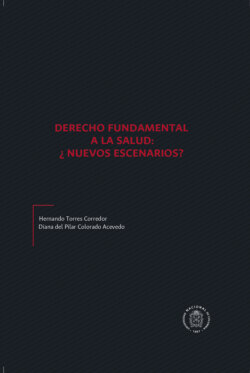Читать книгу Derecho fundamental a la salud: ¿Nuevos escenarios? - Hernando Torres Corredor - Страница 39
На сайте Литреса книга снята с продажи.
Comparing different protections to right to health and the health democracy in Brazil, Russia, India, South Africa and China
ОглавлениеTo compare the different protections to right to health and the health democracy in Brazil, Russia, India, China and South Africa (BRICS) it was established five major themes to be analyzed:
♦ Health and democracy: analysis of the relations between the State and the Society
♦ Health democracy in normative production and in the implementation of health public policies: institutions of democratic participation on health issues in BRICS
♦ Right to health and courts
♦ Democracy, right to health and technologies incorporation on the Brazilian health
♦ International health law incorporation in BRICS
To develop the comparative research it was established a research partnership between the following academic institutions from each of BRICS countries:
♦ Brazil: University of São Paulo
♦ Russia: High School of Economics
♦ India: Indian Institute of Public Health-Delhi (IIPH-D), Public Health
Foundation of India and National Law University of Delhi.
♦ China: Tsinghua University Law School
♦ South Africa: University of the Free State
Each one of these academic institutions has one or more researcher that integrate the research team and are going to collect data aiming to answer the same questions, organized in a Research Template.
The analysis about the relations between the State and the society is going to encompass, among others, the following issues: the participation of social movements in legislative process; the number and qualification of congressmen linked to health social movements; the public consultation mechanisms related to health issues in the legislative process; the legislative commissions with popular participation and the health committees in legislative power.
Regarding to health democracy in normative production and in the implementation of health public policies, the research is collecting data to discover the different institutions of democratic participation on health in BRICS. It is going to be collected data about the State’s institutions responsible to organize health services and to approve health laws and rules; about federative issues on implementing health policies; about the formal constitutional and/or legal recognition of right to health; about the normative role of the executive power in health issues and about the formal institutions created in health system to make possible to people to participate in the legislative and public policies decision process.
The role of courts in the effectiveness of right to health is also going to be analyzed in a comparative manner, but under other perspective. The focus of the research is going to be the motivation that leads a judge to decide a health litigation process in a way or another. It is going to be collected data about judge’s law education, about the type of lawsuits used to litigate health, about the education of judges to solve health legal issues and about the most often issues litigated in BRICS.
Another important aspect that must be understood regarding the right to health effectiveness is how international health laws are incorporated in each one of BRICS country. The research will analyze in a comparative perspective if there is a compulsory procedure for the incorporation of international laws in each country and how do public authorities consider such norms. Two main international laws are going to help in these aspect of the research, as leading cases: the International Sanitary Regulation (2005) and the Convention on Tobacco Control (2003).
At last, the research is going to collect data and compare how BRICS’ health systems incorporate new technologies. Health technologies include - other than medical equipment - health products, medicines, vaccines, diagnosis tests, prosthesis and orthosis, and numerous materials and informational systems for health care services. The research is going to find out if the BRICS States have specific institutions for the deliberation regarding the incorporation or purchase of such health technologies (pharmaceuticals, equipment etc.). It is also going to be analyzed how these countries organize the essential medication list in order to guarantee people’s primary health necessities, as stated by the World Health Organization.
The research has already found out some partial results, specially regarding to the different legal protection that each country established to guarantee the effectiveness of right to health in their territories.
